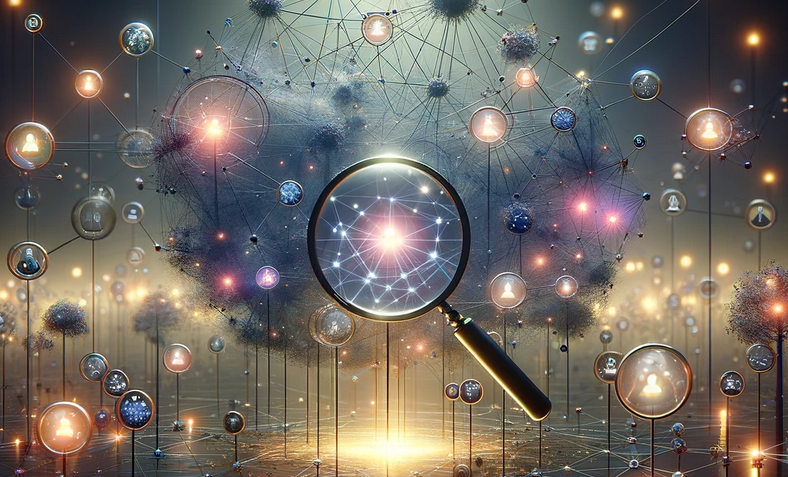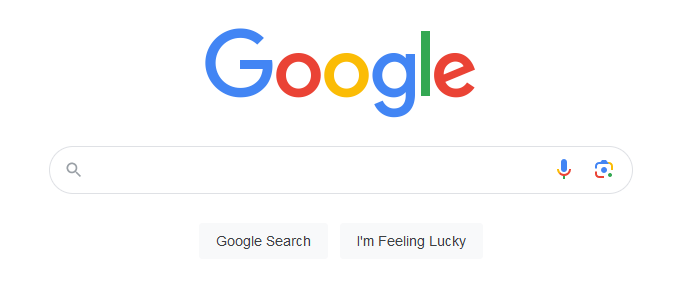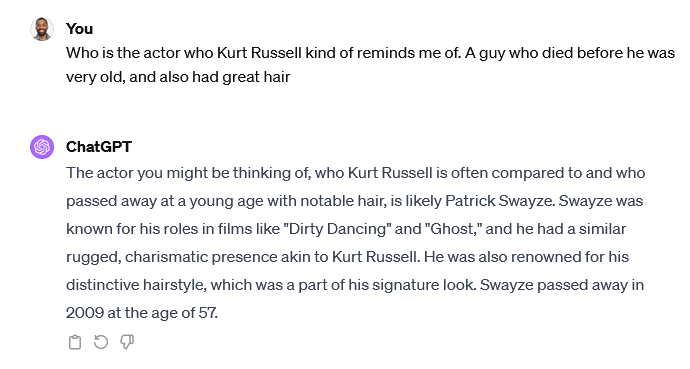
Similar to how people have coined the term web3 to describe a proposed radical change in the consumer web landscape, unlocked by the blockchain1, online search is about to be disrupted by the same technology that gave us ChatGPT. Soon, we’ll be able to search by describing what we’re looking for, holistically, rather than having to think like a search engine.
Or, at least, I hope so.
The progression of search experience
To be clear, as I discuss how search has progressed, I’m speaking primarily from a perspective of end user experience. I don’t have an expert’s background in the underlying technologies, so give me a little leeway there.
Search 1.0 was structured search, using rigid forms. You can still find it today in a lot of large scale databases. It looks for exact matches, by field. If your lucky, you may get a few more predicates to work with.

Search 2.0 is intelligent keyword search in a single field. It was pioneered in the 90s with the first Internet search engines, before famously being taken over nearly completely by Google

For the better part of 30 years, we’ve basically been stuck with what we’ve got today. It’s pretty good if you know the right keywords. If you don’t, you’re probably better off going to a Q&A site, like Stack Exchange or Quora, where humans might be able to help you.
search3 is holistic search. Instead of looking for the literal words you’re using, search engines will be able to effectively interpret the idea behind your request and surface the most relevant content. The difference will be massive.
What search3 means
A lot of frustrating online experiences will be vastly improved by search3. For instance, I think we’re about to see a revolution in online shopping. Today, if you’re trying to find a product that fits certain high-level characteristics that aren’t given to you as explicit filters, good luck to you. Shopping for furniture is one example. If you were at a story with a large inventory and a knowledgeable clerk, they would be able to make recommendations. Machines are going to be able to do this way better, because they have the capacity learn massively more attributes of massively larger inventory.
search3 is powered by vector databases. They turn unstructured content into fixed-length lists of numbers, which can then be compared for similarity. For example, maybe the color of an item is represented by field #37 and field #64 out of 1000+ fields. It’s more convoluted than that, but that’s a very simple way to think of it. It’s a completely different technology
I feel like I got a taste of the future a couple weeks ago. I was hanging with family, talking about movies, and after we talked about the film Tombstone, my uncle was like, “and who’s that other guy who was big at the time?” He couldn’t think of the name or the movie, but remembered that the guy died at some point and had great hair. After several minutes of futility, I guessed Patrick Swayze, and my uncle goes, “that’s him!” A couple days later, I had the idea to see how ChatGPT would do with such a vague search:

I mean, wow. Now, ChatGPT isn’t the same as vector search. It’s responding to a prompt from a perspective of a huge body of training text, rather than returning ranked examples of a fixed set of objects. But I think this example shows the promise of this whole class of technologies. Imagine what’s possible with a system that is specialized specifically for search. I think a lot of experiences are begging for a revamp:
- Looking for houses by description of what you want
- Shopping for clothes by very detailed characteristics
- Ability to find new songs that are similar to a given song in ways that you specify
- Finding an artwork that reminds you of a famous artist, but is in your price range
So…when do we get it?
While I hope this is in store for us in the near future, but I do have some reason for skepticism. Incumbents like Google, Amazon, and eBay seemingly have a massive incentive to take us to search3, and they certainly have access to bleeding edge tech. Yet, we’ve got ChatGPT, but not search3. To me, that says the technology isn’t ready for prime time. I’d love to be a fly on the wall and know what’s missing.
Nonetheless, search3 feels inevitable to me, whether it’s this year or maybe by the later part of the decade.
- I’ll be honest that I remain skeptical of web3. I think it’s a valid technological vision, but I also think that pervasive tokenization incentivizes convoluted “get rich quick schemes” over actually creating better user experiences. Also, most people don’t actually want every experience to be mediated by a bespoke token with its own little financial system. Nonetheless, the idea of a radical shift in how user experience is a good analogy. ↩︎